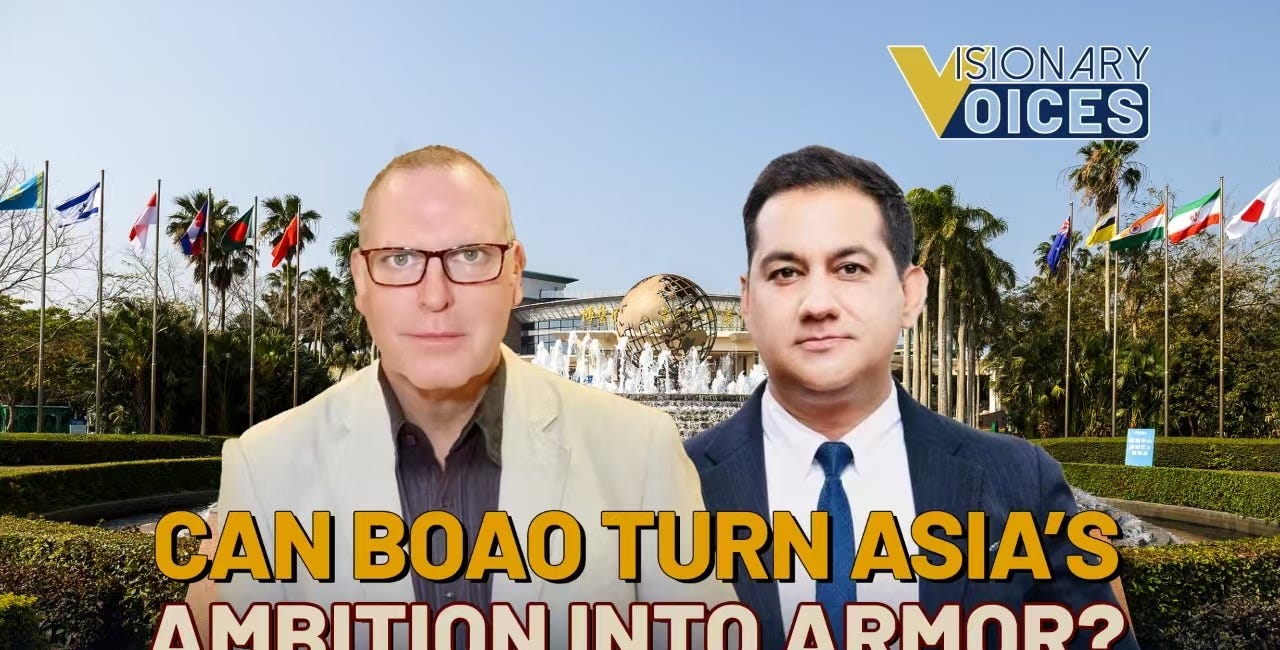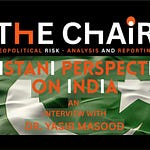Tariffs or Diplomacy: Will they divide the world?
On April 9, 2025, a titanic 145% U.S. tariff on Chinese imports ignited Beijing's swift 125% retaliation. This move has created a cacophony of concerns.
Featured contributor Dr. Yasir Masood engaged in a digital dialogue with Mike Billington, a renowned American geopolitical analyst, to unpack this high-stakes clash and its global fallout.
Editor's note: CGTN's First Voice provides instant commentary on breaking stories. The column clarifies emerging issues and better defines the news agenda, offering a Chinese perspective on the latest global events.
Yasir Masood: On April 9, 2025, a titanic 145 percent U.S. tariff on Chinese imports ignited Beijing's swift 125 percent retaliation. This move has created a cacophony of concerns across global markets, as U.S.-China tensions, once warmed by historic visits, now fray under hardline advisors and economic fears. With Europe eyeing Beijing and talk of cooperation fading, what's next?
I engaged in a digital dialogue with Mike Billington, a renowned American geopolitical analyst, to unpack this high-stakes clash and its global fallout.
Billington: I think the most important issue in terms of U.S.-China relations and these tariffs that were imposed and then partially withdrawn, except on China, is that we're dealing with a president, President Trump, who is surrounded by people who are rabidly anti-China. You have Peter Navarro as a top economic and trade advisor to Trump. Navarro is literally psychotic about China. Navarro also has been a leader in promoting these extreme tariffs and especially on China.
But then you also have the Secretary of Defense, Pete Hegseth. This man is also virtually psychotic about China. Then you have Mike Waltz, who's the National Security Advisor. He was an aide to Dick Cheney, one of the most extreme neocons, so-called warmongers and he was the promoter when he was in the Congress of boycotting the Olympics in China in 2022. So, these are people who have no qualifications whatsoever on diplomacy, but are rabidly anti-China and unfortunately have a certain voice.
Masood: Trump's first term kicked off with a rare thaw – visits with Xi, personal overtures and big promises. But Billington says that faded fast, driven by advisors with strong anti-China views – voices that sidelined diplomacy and favored confrontation over talks.
Billington: Now, on the other side, you might remember that when President Donald Trump came in his first term, his initial response towards China was that he invited Xi Jinping to visit him in Mar-a-Lago and then he visited Beijing and spent a couple of days with Xi Jinping. Xi Jinping took him to the Forbidden City. He literally gave him a lesson on Chinese history and philosophy and Trump came back praising China and praising Xi Jinping as a great leader.
Now, all of this is going on at the same time that the world financial system is on the brink of total collapse. There are now two quadrillion dollars – a quadrillion is a thousand trillion dollars – in gambling debts, what they call derivatives, which are sitting on top of the Western banking system, threatening to completely fall apart.
And on top of this, Trump introduced these extremely high tariffs, not only on China, although that's the worst case, and he's removed most of the tariffs except for China. But is he going to continue them? It's not clear.
The economic crisis in the West is evident, and these tariffs have properly frightened people around the world.
Masood: Billington's perspective illuminates Europe's evolving role in response to Washington's isolationist measures. As U.S. policies marginalize longtime allies, European nations are decisively courting Beijing to forge stronger strategic ties. The overarching question remains: Will the U.S. shift toward cooperation, perhaps by embracing China's development model, as seen with the Belt and Road Initiative, or will its confrontational stance further destabilize the global order?
Billington: I think even the Europeans are now trying to improve their relations with China and it's in part because they see that they're being targeted by the United States and they're probably going to lose the support of the United States as the bedrock of NATO and so forth.
And I think the fact that most of the countries are willing to talk to the United States and to negotiate on what to do about these tariffs, that's probably, they have no choice. They really have to do that for the betterment of their people.
Well, I think we have to be hopeful that Trump will recognize that we need to negotiate. He did say just the other day, I heard him say, just listening to him speaking at a news broadcast, that he recognizes that Xi Jinping is a brilliant person. And if he restores his earlier vision of U.S. and China cooperation and has respect for China's sovereignty, that's a first step to avoid the disaster.
We have a model actually in China, which not only lifted 800 million of its population out of poverty and developed the most advanced technological country in the world, but then began to take these ideas of infrastructure and technology to the rest of the world through the Belt and Road. And the Belt and Road Initiative represents a model that the U.S. should join in order to put together a world based on a new architecture that addresses the economic and development needs and security needs of every single nation on earth.
https://news.cgtn.com/news/2025-04-17/Tariffs-or-diplomacy-Will-they-divide-the-world--1CEaTKY1k9a/p.html
WATCH the full version video
Catastrophic Collapse
President Donald Trump’s second term in office has demonstrated his mastery of modern media, but also the weaknesses of being surrounded by ‘Yes’ men and women in his cabinet choices and administration generally.















Share this post